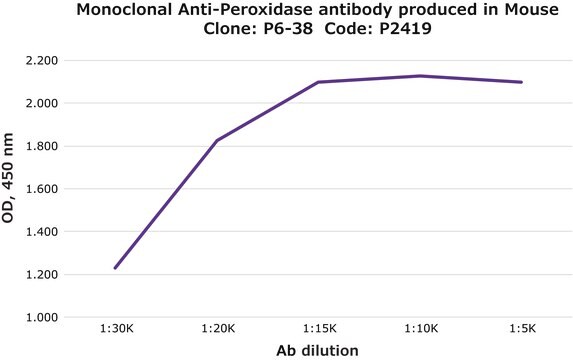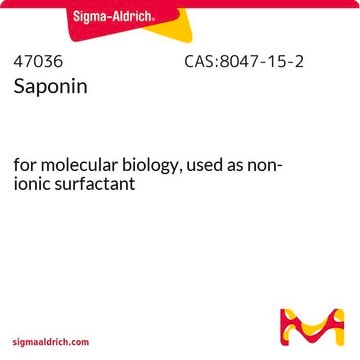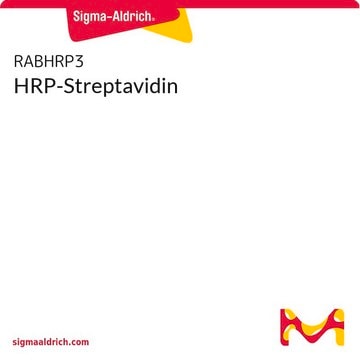P1291
Peroxidase Anti-Peroxidase Soluble Complex antibody produced in rabbit
affinity isolated antibody, buffered aqueous solution
Synonyme(s) :
Antiperoxidase, Pap Antibody, Peroxidase Anti Peroxidase, Peroxidase Anti Peroxidase - Peroxidase Anti-Peroxidase Soluble Complex antibody produced in rabbit, PAP
About This Item
Produits recommandés
Source biologique
rabbit
Niveau de qualité
Forme d'anticorps
affinity isolated antibody
Type de produit anticorps
primary antibodies
Forme
buffered aqueous solution
Technique(s)
immunohistochemistry (formalin-fixed, paraffin-embedded sections): 1:200
Conditions d'expédition
dry ice
Température de stockage
−20°C
Modification post-traductionnelle de la cible
unmodified
Vous recherchez des produits similaires ? Visite Guide de comparaison des produits
Spécificité
Application
- immunoblotting
- to detect the expression of TAP-tagged proteins
- immunoprecipitation
- immunohistochemical staining
Actions biochimiques/physiologiques
Forme physique
Stockage et stabilité
Clause de non-responsabilité
Vous ne trouvez pas le bon produit ?
Essayez notre Outil de sélection de produits.
Mention d'avertissement
Warning
Mentions de danger
Conseils de prudence
Classification des risques
Skin Sens. 1
Code de la classe de stockage
10 - Combustible liquids
Classe de danger pour l'eau (WGK)
WGK 3
Point d'éclair (°F)
Not applicable
Point d'éclair (°C)
Not applicable
Certificats d'analyse (COA)
Recherchez un Certificats d'analyse (COA) en saisissant le numéro de lot du produit. Les numéros de lot figurent sur l'étiquette du produit après les mots "Lot" ou "Batch".
Déjà en possession de ce produit ?
Retrouvez la documentation relative aux produits que vous avez récemment achetés dans la Bibliothèque de documents.
Notre équipe de scientifiques dispose d'une expérience dans tous les secteurs de la recherche, notamment en sciences de la vie, science des matériaux, synthèse chimique, chromatographie, analyse et dans de nombreux autres domaines..
Contacter notre Service technique








